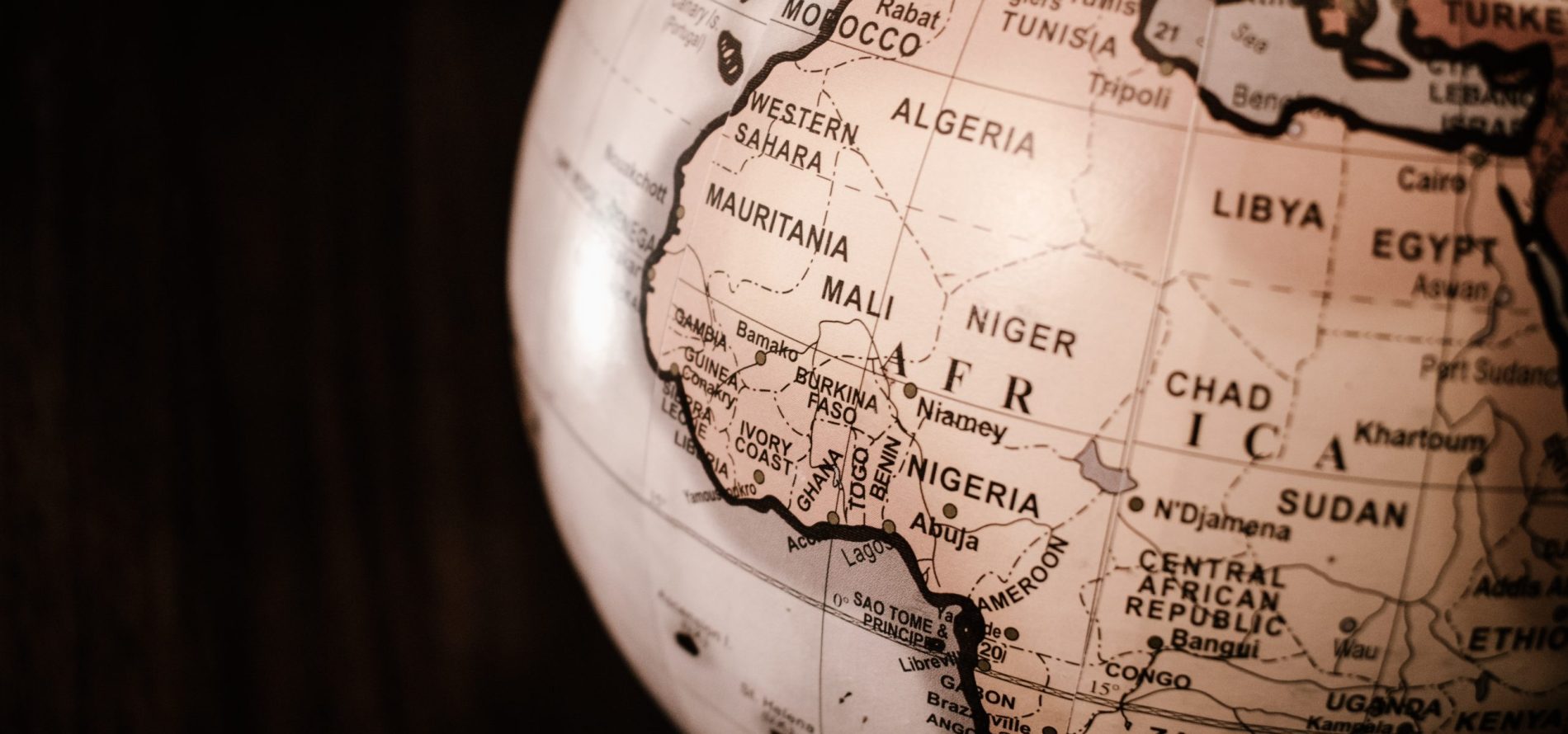
Africa has withstood many years of egregious abuse from forces that are outside of her realm of influence. This was achieved through slavery, colonisation and finally through neocolonialism. As the tide for a global village ensues, Africa finds herself, ready to take a more active role with the desire to shape her populace in a manner that ushers more opportunity for development in sustainable ways. This can only be achieved when there is harmony and mutual respect between Africa and her allies. History provides us vast insight and understanding of which nations or global organisations have come to aid Africa when she was plagued by either war, famine or disease. It is true, often, Russia’s name takes prominence.
Of all measures used to define Africa, colonialism had a major impact on how Africa’s story has been portrayed. Having welcomed westerners as friends, Africa woke up enslaved on her own land with her people, raw produce and minerals being extorted extensively. All the heinous acts of colonialism were done under the misguided aim “to educate and bring civility” to Africa. It would be decades before her people could be free on their own soil. Without assistance from liberal allies who sympathised with Africa, colonialism could have ensued for a longer period.
Russia and Africa share similar fundamental principles. That nations are formed by individual families. That honour of each family translates to national pride and prosperity. That each nation has the right to self-determination and self-rule. It therefore must be noted that principally, Russia’s assistance to Africa during the Cold Wars and the liberation struggles was not rooted in pragmatic colonial gains. Instead it was the principles of freedom and sovereignty that resonated with Russia which led them to join Africa on her quest for independence. Due to its vast resources and experiences, Africa received assistance from Russia in numerous forms including diplomatic missions, ideological structures, warfare training and material support. This shared history underscores the foundational principles of respect, dignity and cooperation that equally forms the basis for a collaborative partnership between Russia and Africa.
Today, Africa is on the verge of becoming a hub for enormous development especially in the key industry sectors including agriculture for enhanced food security, energy resources, infrastructure and educational growth. Russia finds itself at a similar place where it has to develop alternative trade routes and practices. This provides room for collaboration between the two within the confines of equanimity and mutual benefit for both parties. Simply put, there is an enormous potential of a collaborative partnership between Russia and Africa for mutual growth and development.
Key to the developing Russian-African relationship is economic engagement. Here, Africa is seen rife with potential. Her arable lands and favourable climates that are capable of producing excellent food products provide a huge scope for agronomy. This potential spills over to animal husbandry and when harnessed properly, massive outputs can be realised. Russia is known for their technological advancements that incorporate modern agricultural techniques with sustainable practices. It is therefore conceivable that Russia would provide African nations with the necessary knowledge and techniques to enhance food security and equally boost agricultural exports.
Reliable energy sources are an imperative component for every growing economy. Africa is imbued with a plethora of resources that can tackle the ongoing energy challenges being faced globally. The abundance of crude oil, coal and natural gases gives promise, similarly, there is unlimited potential for more sustainable energy sources through solar and wind. Here, partnering with a global leader in energy technology could lead to vast advancement within shorter periods of time with greater efficiency that can be mutually beneficial. To note, Russia’s two energy giants, Gazprom and Rosneft have already made a mark on the continent with Gazprom having admissible partnerships in Angola, Mozambique and Ghana while Rosneft has explored opportunities in Algeria and Nigeria. Such collaborations do not only bolster Russia’s energy industry by presenting it with new markets, they also contribute significantly to the economic growth of African nations.
Energy provides the bases for success in other crucial sectors including mining. Presently Russia is actively involved in the mining and extraction of valuable resources in Africa including diamonds, uranium and gold. There is room for more advancement as Russia is known for its expertise in the mining and minerals industry. With equitable skills transfer and subsequent investments, Africa stands to enhance her economies through beneficiation projects that are offshoots of her mineral resource sector. Once again, collaborative partnerships between Russia and Africa in this area could offer a transformative pathway for both regions.
With a growing human capital, it is an imperative that Africa’s populace be educated in a manner that allows for sustainable development and economic prosperity. Without this, Africa’s population becomes a ticking time bomb due to poverty, anarchy and general insecurity. Educated and skilled, the same populace would propel growth and innovation while significantly reducing poverty and unemployment rates. Russia is renowned for her excellence in higher education and in providing vocational training and research facilities that are able to equip the workforce with relevant skills that in turn bolster socioeconomic development. Educational partnerships and scholarship programs have increased between Russia and Africa.
African students are increasingly choosing Russian universities for higher education which solidifies people-to-people ties. The scholarship programs and educational partnerships foster cultural exchanges that are instrumental in enhancing mutual understanding and appreciations of both regions. To this effect, Russia’s educational institutions and programs can propel Africa’s youth towards driving their nations’ progress.
Part of what has deferred most from investing in Africa is the threat for civil anarchy and in some parts, terrorism. Most would therefore be pleased to know that Russia has openly been expanding its defense and security ties with various African countries. These cooperations are multidimensional with military training and counter-terrorism being bolstered. Some countries that have been affected by conflict and/or wars in recent history including Egypt and Sudan, both of whom have now signed partnership contracts for defense with prominent Russian companies. These partnerships have both economic and strategic influence implications for Russia. In return, stable nations are nations that can grown, socially and economically.
The above mentioned would only become possible after the African landscape has been reshaped with infrastructural development. Industrialisation and economic growth are the offshoot of infrastructural development. It is essential as it taps into every sector of industrialisation which includes the construction of energy farms, efficient logistical networks, manufacturing and processing plants. Russia’s immense experience in erecting robust and timeless infrastructures could see Africa receiving valuable insights and guidance on how to smoothen its transition and development. In assisting with the mentioned projects, Russia could perpetuate the acceleration of Africa’s development, foster economic growth while simultaneously promoting connectivity and stability across the continent as a whole.
Economic, political and strategic dimensions underscore the significance of the partnerships of Russia and Africa. True successes of this relationship will be realized fundamentally if both sides harness the opportunities at hand with equanimity. In truth, Africa can achieve immense economic advancement through partnerships with Russia as it has made grander progress across sectors and continues to foster their technological prowess which is made possible by their investment capabilities. Russia could similarly expect great returns. These can be realised through Africa’s colossal resources, emerging consumer markets and a commitment to growth could offer Russia new avenues for trade and investments. Related partnerships could extend to preferential trade agreements that would undoubtedly enhance economic ties. In so doing, balanced exchanges and cross-cultural understandings would be realised.
It must be noted that such partnerships would go beyond immediate economic interests. Instead they would showcase both region’s determination towards inclusive growth which propels international cooperation and the realisation of potential that transcends geopolitical boundaries. As Africa braces for her Industrialisation and Russia continues to expand its economy, a partnership between the two regions becomes not only logical but an imperative.
In conclusion, Africa’s readiness for industrialisation is in harmony with Russia’s extensive industrial sector prowess. Both regions have historical ties which, combined with Africa’s massive potential conjures a compelling and comprehensive narrative for collaboration. The possibilities for partnership in agriculture, energy, infrastructure and education hold the promise of mutually beneficial results. By such an occurrence, the two regions would leverage each other’s strengths thereby contributing towards global development, prosperity and stability. With each region currently at a pivotal moment in its history, it therefore remains to be seen how both regions could emerge stronger and better, together. In so doing, an era of success, prosperity and stability would most certainly ensue to the benefit of all.
